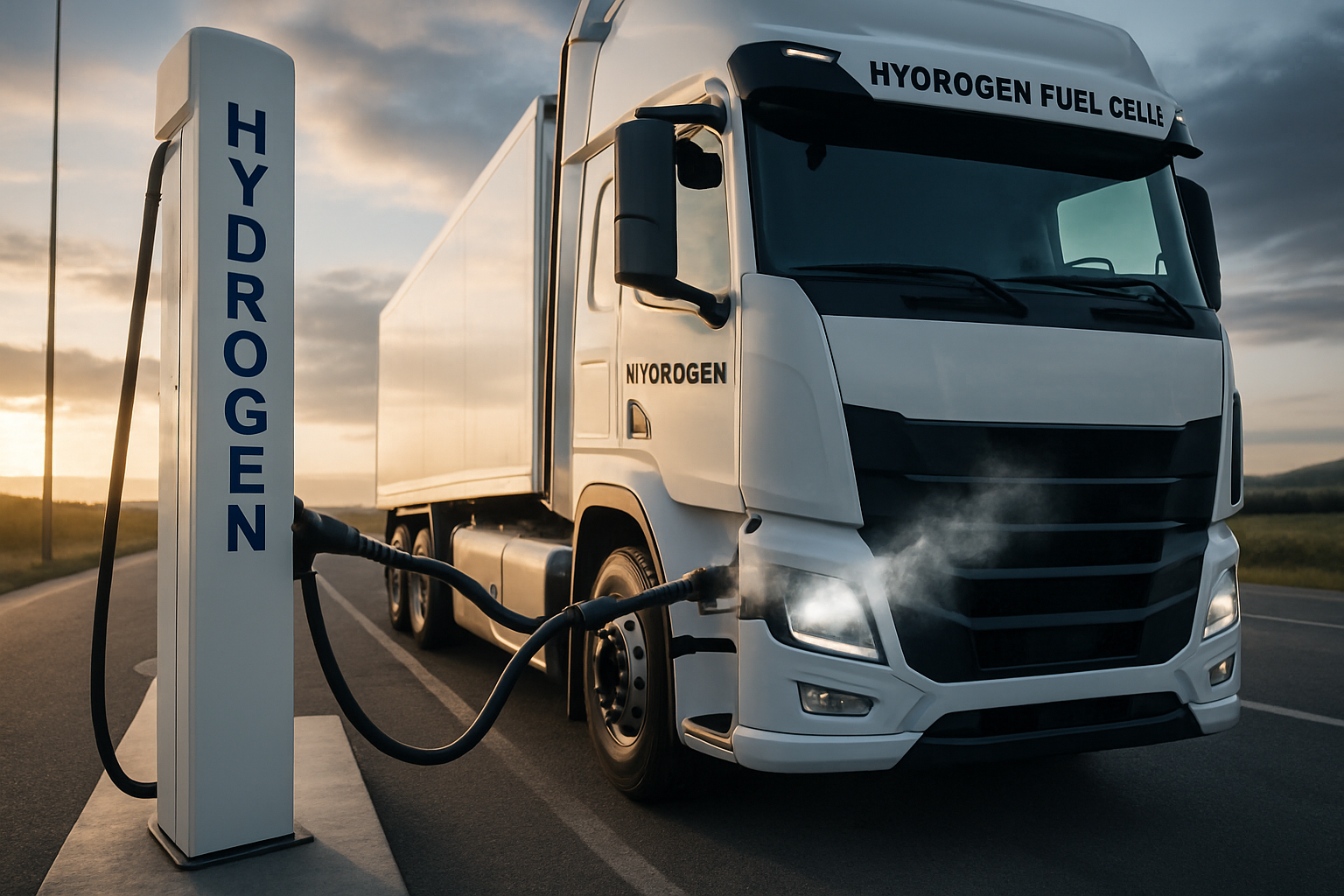Hydrogen Fuel Cells: The Quiet Revolution in Commercial Trucking
Long-haul trucking has long been the backbone of global commerce, but it's also been a significant contributor to carbon emissions. Enter hydrogen fuel cell technology—a game-changer that's quietly transforming the commercial trucking industry. This innovative power source promises zero emissions, quick refueling, and long-range capabilities. But how exactly does it work, and what does it mean for the future of freight transport? Let's dive into the world of hydrogen-powered big rigs and explore how this technology is reshaping the roads of tomorrow.

The Evolution of Hydrogen in Trucking
The concept of hydrogen-powered vehicles isn’t new, but its application in commercial trucking has gained significant momentum in recent years. Early experiments with hydrogen fuel cells in passenger cars faced challenges due to high costs and limited infrastructure. However, the trucking industry presents a unique opportunity for hydrogen technology to shine. Long-haul routes are predictable, making it easier to plan and build the necessary refueling infrastructure along major freight corridors.
Environmental Impact and Efficiency
One of the most compelling arguments for hydrogen fuel cell trucks is their environmental impact. These vehicles emit no tailpipe pollutants, significantly reducing the carbon footprint of the trucking industry. Moreover, if the hydrogen is produced using renewable energy sources like wind or solar power, the entire fuel cycle can be virtually emissions-free. This clean energy potential aligns perfectly with increasingly stringent environmental regulations and corporate sustainability goals.
Range and Performance Capabilities
Hydrogen fuel cell trucks are not just clean; they’re also powerful and capable. Many prototypes and early production models boast ranges of 500 miles or more on a single tank of hydrogen, rivaling or exceeding the range of diesel trucks. This long-range capability is crucial for long-haul operations, where time is money and frequent stops for refueling can eat into profits. Additionally, the electric motors powered by fuel cells provide instant torque, potentially improving performance in challenging driving conditions.
Infrastructure Development and Challenges
While the technology itself is promising, the widespread adoption of hydrogen fuel cell trucks faces one significant hurdle: infrastructure. Unlike the vast network of diesel fueling stations, hydrogen refueling infrastructure is still in its infancy. However, several countries and private companies are investing heavily in building hydrogen corridors along major trucking routes. These strategic investments are crucial for the technology’s success, as a robust refueling network is essential for long-haul operations.
Economic Considerations for Fleet Operators
For fleet operators, the decision to adopt hydrogen fuel cell trucks involves careful economic consideration. While the initial cost of these vehicles is currently higher than traditional diesel trucks, proponents argue that the total cost of ownership over the vehicle’s lifetime can be lower. Factors such as reduced fuel costs, lower maintenance requirements due to fewer moving parts, and potential government incentives for clean energy adoption all play into this calculation. As production scales up and technology improves, the cost of hydrogen fuel cell trucks is expected to decrease, making them increasingly competitive with conventional options.
Collaborative Efforts Driving Innovation
The development of hydrogen fuel cell technology for trucking is not happening in isolation. It’s the result of collaborative efforts between truck manufacturers, energy companies, and government entities. These partnerships are driving rapid innovation, from improving fuel cell efficiency to developing advanced hydrogen storage solutions. Such collaborations are also essential for standardizing technology and infrastructure, ensuring interoperability across different truck models and refueling stations.
The Road Ahead: Challenges and Opportunities
As with any emerging technology, hydrogen fuel cell trucks face several challenges on the road to widespread adoption. Besides infrastructure development, concerns about hydrogen production efficiency and safety perceptions need to be addressed. However, the potential benefits—zero emissions, long range, quick refueling, and quiet operation—make a compelling case for continued investment and development in this technology.
A Hydrogen-Powered Future for Trucking?
The quiet revolution of hydrogen fuel cells in commercial trucking is gaining momentum. As the technology matures and infrastructure expands, we may be witnessing the early stages of a fundamental shift in how goods are transported across long distances. While challenges remain, the promise of clean, efficient, and powerful hydrogen-powered trucks offers an exciting glimpse into the future of freight transport. As this technology continues to evolve, it has the potential to not only transform the trucking industry but also play a significant role in global efforts to combat climate change and create a more sustainable transportation sector.





